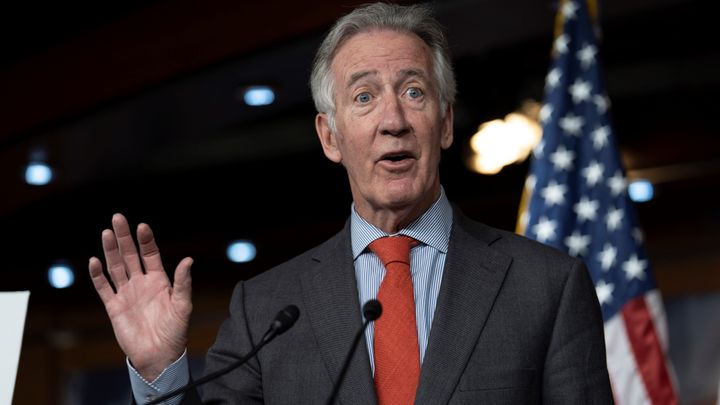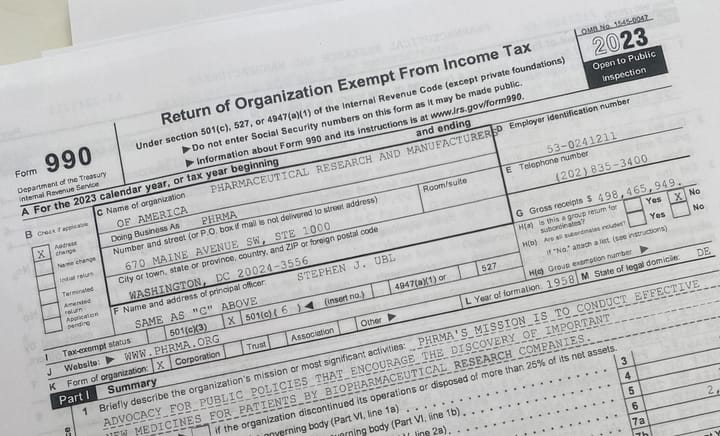Massachusetts Rep. Richard Neal has joined other Democratic lawmakers to express support for the 31,000 Stop & Shop workers who are on strike at 240 stores in Massachusetts, Connecticut, and Rhode Island. But it’s clear he hasn’t fully listened to their requests.
Unlike Massachusetts Sen. Elizabeth Warren, Vermont Sen. Bernie Sanders, and Massachusetts Sen. Ed Markey, Neal has not endorsed Medicare for All, an initiative that would address the health care concerns expressed by the striking Stop & Shop workers by taking the company out of the equation. Through a guaranteed, comprehensive national health care program for everyone, people struggling to cover costs could see relief.
Neal chairs the powerful Ways and Means Committee, which oversees tax-related policies, and has substantial control over whether Medicare for All legislation moves forward in the House. While Neal hasn’t directly opposed Medicare for All, he’s insisted that Democrats should focus on improving the Affordable Care Act, the party’s 2010 health care law. Instead of supporting universal health care, Neal said last week that the government should ensure “universal access to health care.”
Neal did not respond to questions about his thoughts on Medicare for All or his relationship with pharmaceutical companies.
Health care costs are at the center of Stop & Shop workers’ demands. During negotiations before the strike began, Stop & Shop workers rejected a contract that would make their health care more expensive.
“The company is proposing unreasonable cuts to workers’ take-home pay, health care, and retirement benefits,” the United Food and Commercial Workers International Union (UFCW) said in a press release. UFCW said that the company’s proposal would have increased weekly premium costs and would mean the “doubling of health care out-of-pocket limits for many employees.”
“This is the most draconian contract proposal we have ever had,” said Jeff Jones of the UFCW Local 1459. “There is no room to negotiate.” The previous union contract expired in February.
Stop & Shop’s parent company, the Dutch food retailer Ahold Delhaize, isn’t exactly struggling. Last year, the company said that it would save $244 million thanks to U.S. tax cuts. In February, Ahold Delhaize reported about $2.5 billion in “free cash flow.” The company has also prioritized research in artificial intelligence and the introduction of advanced technology to its grocery stores, including a 6-foot-tall robot with huge googly eyes.
In a press release, Stop & Shop downplayed workers’ concerns about their health care expenses. “As costs of health care nationally and for Stop & Shop plans have increased astronomically, our associates’ share of the costs has changed minimally, and our health benefits design has not kept pace with the changing health care market,” the company said.
Although detractors from health care reform often argue that people are attached to their employer-provided insurance, Sanders’ recent Fox News town hall undercut that industry talking point
When Fox’s Bret Baier asked for “a show of hands of how many people get their insurance from work,” many people in the audience raised their hands, Baier said: “Okay now of those, how many are willing to transition to what the Senator says, a government-run system?” The Fox audience erupted in applause and cheers.
“Millions of people every single year lose their health insurance,” Sanders responded. “You know why? They get fired, or they quit, and they go to another employer.”
He said: “Every year, millions of workers wake up in the morning and their employer has changed the insurance that they have. Maybe they like their doctors. … So this is not new. Every year. Now, what we’re talking about actually is stability. That when you have a Medicare for All, it is there now and it will be there in the future.” The audience started cheering again.
According to recent data from the Kaiser Family Foundation, 56 percent of people support national Medicare for All. Seventy-five percent of people said they supported the option of a Medicaid buy-in for people who do not receive health insurance through their employers.

Neal’s reluctance has made him a target for progressive activists. Adam Green, co-founder of the Progressive Change Campaign Committee, said last month: “If he’s the one guy blocking Medicare for All nationally as nearly every presidential candidate—including Elizabeth Warren—are campaigning on it, that just makes him a very objectionable status quo Democrat and would invite a primary challenge and national attention.”
Neal relies on major campaign contributions from PACs and individuals affiliated with health care companies, pharmaceutical companies, and insurance industry groups like the National Association of Insurance and Financial Advisors (NAIFA). NAIFA is a member of the Partnership for America’s Health Care Future, a health industry coalition created in 2018 to defeat Medicare for All. Neal has taken $320,000 over the past ten years from employees and political action committees affiliated with the organizations and companies that are members of the coalition, Sludge’s analysis of campaign finance records found.
Insurance company UnitedHealth Group CEO David Wichmann told investors Tuesday that Medicare for All would “surely jeopardize the relationship people have with their doctors, destabilize the nation’s health system and limit the ability of clinicians to practice medicine at their best.” UnitedHealth’s PAC gave the legal maximum of $10,000 to Neal in 2017-18.
As the push for Medicare for All gains traction, health care interests have continued to shower Neal in cash, according to his latest campaign finance report, filed with the Federal Election Commission this week. This year, Neal received campaign contributions from the American Health Care Association, a trade group for assisted living and long-term care facilities, and the National Health Corporation, which operates 76 nursing homes.
He also took donations from the PACs of health insurance company Cigna and pharmaceutical companies Merck, AstraZeneca, Sunovion and Abbott Laboratories. The PAC of medical device manufacturer Zimmer Biomet, the Medical Device Manufacturers Association PAC, and the PACs of biotechnology companies Genentech and Bluebird Bio also gave money to Neal’s campaign committee this year.
Robert Coughlin, a federal lobbyist for and CEO of Massachusetts Biotechnology Council, gave $1,000 to Neal this year. He recently spoke at a hearing about drug pricing at the Massachusetts State House against legislation that would allow the state to limit prescription drug prices.
Neal also received recent donations from the PACs of two members of the Partnership for America’s Healthcare Future—the Federation of American Hospitals and the National Retail Federation. The National Retail Federation lobbied on a bill cosponsored by Neal designed to address with the opioid crisis through the pharmacies’ role.
As the Stop & Shop strike enters its second week, “The support from the public has been nothing short of amazing,” said UFCW 919 organizer Jorge Cabrera.
“Stop & Shop underestimated the amount of good will [its employees] build with their customers,” he said. “We expected customer support. Not like this.”
Related:



